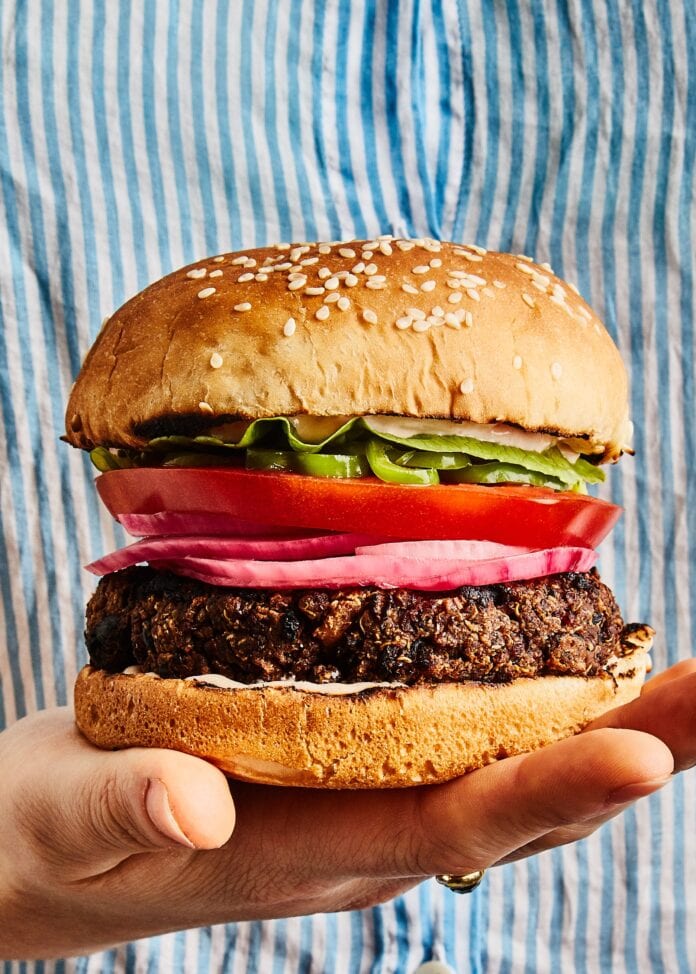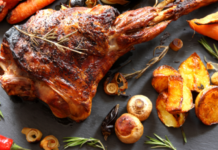VEGETARIANS and vegans will be left off the guestlist for this summer’s barbecues… because meat-eating hosts can’t be bothered with the faff of cooking separate dishes.
A study released by Future Farm found that more than a quarter of Brits say they would avoid inviting non-meat eaters, even though almost half the population accepts that many more barbies will be all veggie in the future.
As garden guests are now allowed under the new ‘rule of 6’ or ‘two households’ guidelines outdoors, The Future News Report by leading plant-based brand, Future Farm, also shows that a third of all adults in the UK have eaten less meat during the coronavirus pandemic.
Out of the 2,000 surveyed, a whopping 29% of adults say they would snub veggies and vegans when having a barbie, and one in five would make them bring their own food if they did invite them.
And a third of people in the study said they worried about catering for other people’s children at parties due to their dietary requirements.
At the same time, 47% believe that most barbecues in the future will be all veggie or vegan so that no one needs to miss out on an invite. And more than half intend to eat more plant-based meals in the future. 1 in 4 meat eaters would go vegan or vegetarian if they found good meatless alternatives.
Though many Brits want it all with 39% calling themselves flexitarians.
In today’s era, food technology has played a huge role in the evolution of the plant-based category.
Since the original 1982 ‘VegeBurger,’ the category has accelerated growth and offerings of plant-based products which are replicating its meat counterpart on texture, taste, colour and preparation.
“Our newest 2030 Future Burger is our closest plant-based meatless meat product indistinguishably matching its meat origin – so no need to leave people off the BBQ list. Our products bring meat-eaters and vegetarians together, without either having to compromise on taste, for any occasion.” – Pedro Zuim, Marketing Director at Future Farm.
Food-innovation experts, Alexandra Hayes and Lisa Harris explain: “The future of food is almost certainly meatless, or at the very least with drastically reduced meat consumption. We know that the pandemic has reduced people’s meat-eating habits, as they’ve become more environmentally and health-conscious.
The research validates a distinct move towards more plant-based eating. Results show that consumers are adopting big diet changes, and they can even imagine such traditionally meat-centred occasions as BBQs being meat-free in the future.
The fact that a third of respondents have reduced their meat consumption, proves the high standard of meat alternatives on the market which offer the same, if not better, value, satisfaction, health and environmental footprint.
39% identify as flexitarians. This proves a huge desire to consume less animal products, and a more holistic approach to diets both for the individual and for the planet.
There is still some social awkwardness around individual dietary needs, however; now (more than ever) people want to feel united and connected through sharing food. Meatless meat is an important innovation in this area; it’s not only more sustainable and healthier than meat, but it cooks and tastes similar to meat. This is great news for 64% of the UK’s population who consider themselves flexitarian, vegan or vegetarian – they don’t need to be excluded from the BBQ anymore. “
Help keep news FREE for our readers
Supporting your local community newspaper/online news outlet is crucial now more than ever. If you believe in independent journalism, then consider making a valuable contribution by making a one-time or monthly donation. We operate in rural areas where providing unbiased news can be challenging. Read More About Supporting The West Wales Chronicle

























